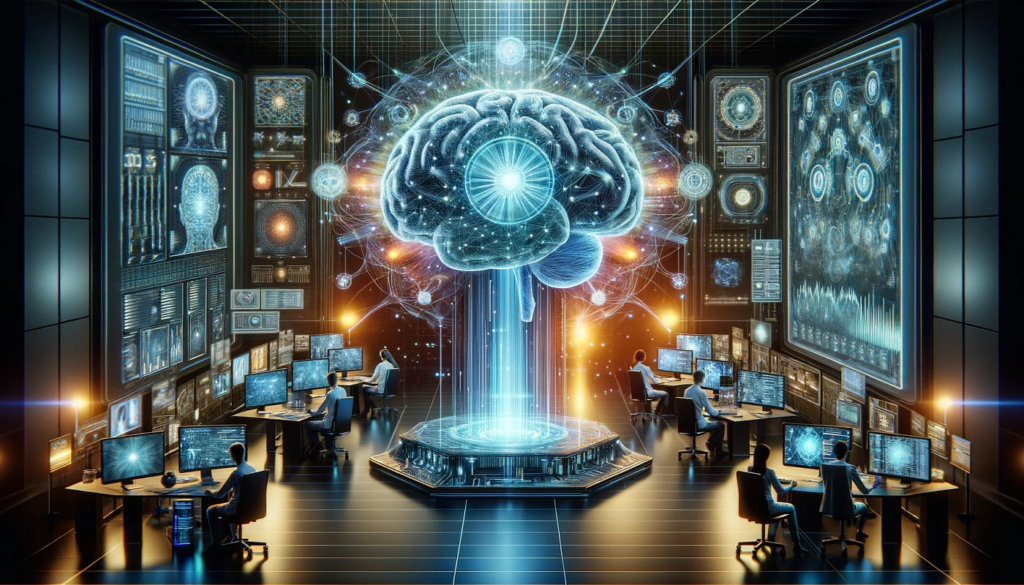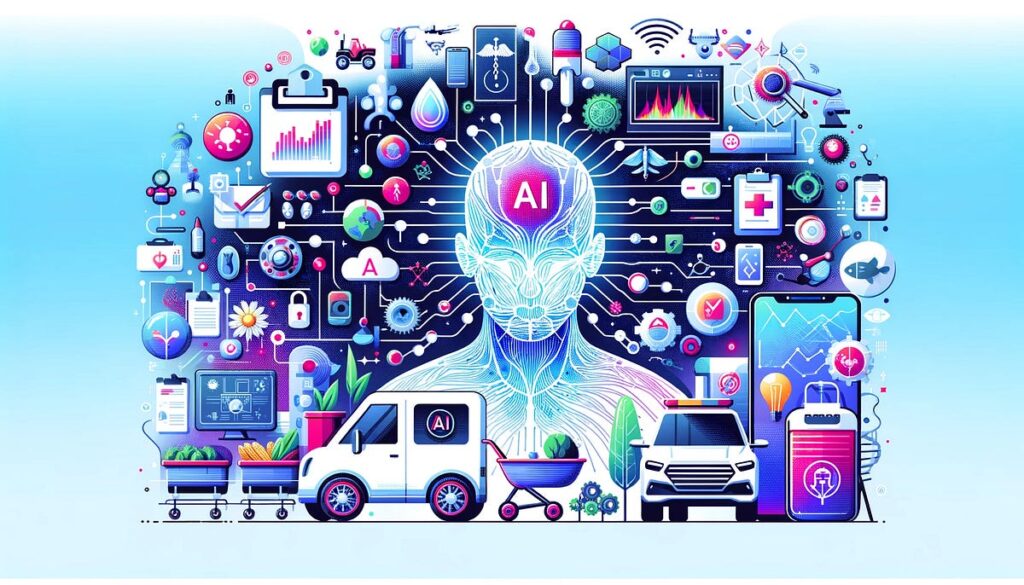It has not been long since robots only existed in books. While we may not have flying cars yet, we have seen a lot of advancements in artificial intelligence (AI).
AI has become a household name after the inception of the revolutionary ChatGPT in 2022. Since then, it has infiltrated our lives to the point that many people depend on it to do different tasks. Computer programmers, interior designers, and even teachers now use AI to do their work more efficiently. For example, around 92% of developers in the US now use AI coding tools.
No one can challenge the fact that AI has completely transformed our society. It has made processes easier, quicker, and more cost-friendly. Let’s explore in detail how AI has been impacting our lives.

Major AI Technologies
Now, since AI has become ingrained in our lives, don’t you think we should know what goes behind it? Don’t worry this is not a class of machine learning or data science. We will keep it short and simple.
For everything new that AI does, there is a fancy technology working behind the scenes. Whether it is AI conversing with humans, generating videos, or robots doing surgeries, each feat uses a different AI technology. Let us take a look at some of the major technologies that make AI so smart.
- Natural Language Processing: Also called NLP, this technology enables AI to understand and process human language. It is called natural because it simulates how the human brain processes language and makes sense of it. ChatGPT heavily relies on NLP to talk to us.
- Computer Vision: Computer Vision (CV) allows AI to identify and evaluate visual images like people’s faces and videos. AI can generate images because of a CV. Self-driving cars use CV to detect other traffic on the road.
- Deep Learning: This technology teaches AI to logically make decisions as humans do. It allows AI to learn, remember, and process information by analyzing patterns. For example, AI can identify different features in different animals and categorize each animal’s features separately. In short, Deep Learning enables AI to make its own decisions.
- Machine Learning: It allows AI to do stuff by training it on related data. It also simulates how humans learn. For example, ChatGPT is trained on data containing happy text messages to identify happiness while conversing with us.
Advantages of AI
AI has transformed our lives for the better (some conspiracy theorists might say otherwise). It has made some of the most impossible feats possible. Let us have a look at what makes it so beneficial for us humans.
- AI automation drastically reduces the chance of human error.
- AI allows us to save time by doing repetitive tasks.
- AI enables us to be more creative by being our brainstorming partner.
- AI decreases business costs by doing menial tasks.
- AI helps in business decision-making with its ability to analyze data.
How is AI Transforming Different Fields?
So many fields and industries are now employing AI. For example, Google search heavily relies on AI but not many of us know that it uses prediction models to predict our searches.
Let’s explore the impact of AI in various fields.

Healthcare
We have seen some of the century’s most amazing innovations in healthcare. AI can help medical professionals diagnose patients quickly by analyzing their medical histories and symptoms. Additionally, it aids in drug discovery by helping all major aspects like target identification, molecular simulations, predicting drug properties, etc. This makes drug discovery much quicker and more cost-effective. For example, Atomwise, a pharma company, is extensively using AI in drug discovery.
Moreover, AI robotic arms can now do successful surgeries on humans. This lessens the chances of infection and blood loss. Lastly, AI can also analyze health records at a much faster pace than humans.
Digital Marketing
In the era where content is king, AI has quickly proved itself to be a worthy queen consort. AI is readily transforming areas like marketing, content planning, content creation, and personalized customer journeys. More and more AI tools now help marketers to improve their marketing strategies. Some examples are Midjourney for image generation and Jasper AI for generating marketing copies.
Moreover, AI predicts customer behaviors by analyzing old data. It also automates repetitive tasks like sending emails and entering data into Client Relationship Management (CRM) systems. This saves up a lot of marketer’s time and allows them to do more meaningful work. Most CRMs, like Hubspot, have AI assistants that help marketers with task automation.
Customer Support
AI is improving customer support to give faster and better support to customers. AI chatbots handle basic queries to lighten the agents’ workloads. Apart from decreasing costs, this also significantly improves the customer experience. It also equips support agents to put in more effort in establishing long-term relations with the customer. For example, Xfinity helps its customers with its always-available virtual assistant for support regarding Xfinity Internet subscriptions and troubleshooting.
Additionally, AI agents are now equipped to provide full-fledged support experiences on their own. These are powered by sentiment analysis and machine learning, which enables them to identify if the customer is annoyed or worried. This personalizes the customer support experience. Lastly, AI also summarizes tickets to support agents to save their time.

Smart Homes
Who knew our houses could be smart, right? Well they are, and we can thank AI for that. Smart Homes respond to commands and are aware of our likes and dislikes. These AI-equipped smart home are more comfortable, energy-efficient, and secure. On top of that, some smart home systems use predictive analytics to notify the owners about oncoming potential repairs. This equips the owners to know before hand if some equipment is going to break down.
Moreover, smart home assistants like Alexa and Google Assistant are changing the game well. Smart homes also have AI-powered security systems with automatic locks, intelligent sensors, and intruder-alert alarms. Lastly, AI equips smart homes to automate ambiance control. For instance, smart homes can learn your wake-up times, and adjust lighting accordingly.
Apart from these fields, AI has also transformed fields like cybersecurity, finance, recruitment, and e-commerce. With constant AI innovation taking place, the stage is set for more intelligent AI solutions.
Downsides of AI
As good as AI sounds, there are some downsides to it as well. These disadvantages are the reason why some people are skeptical of AI. These concerns revolve around the misuse of AI and its potential consequences. This is why some senators are lobbying for AI regulations to be put in place.
Here are some of the most apparent disadvantages:
- AI systems can discriminate
AI can pick up biases and societal prejudices through its training data. This negatively impacts their performance and efficiency. For example, an AI-powered applicant tracking system shows discrimination against females by only shortlisting male applicants.
- AI can make humans lazy
As AI takes away the brunt of work, humans can become lazy instead of efficient. We see this happening with websites publishing factually wrong AI-generated content.
- There is a lack of transparency in AI
The AI logic used in decision-making cannot be easily explained. This lack of transparency can have dire consequences in areas like medical diagnoses or financial analyses.
- AI implementation is too expensive
AI depends on powerful GPUs (Graphical Processing Units) and other hardware. These are expensive to buy, maintain, and upgrade. This means AI is only accessible to a certain group of people.
- AI systems can exploit individual privacy through data collection
The data used to train AI models often contains private information like browsing histories. These can be used to potentially harm individuals. It raises questions on ethics and privacy.

Answering Common FAQs
Now that we have explored how AI has been impacting our society, let us address some common FAQs that arise as soon as AI is mentioned.
- Is AI Dangerous?
No, it is not, but it can be exploited. Data ethics is a developing field that ensures the responsible use of data collected for AI.
- Will AI Replace humans?
No, it cannot replace humans. It is trained on data produced by humans, which makes it dependent on us. AI does not have thinking capabilities of its own. It only simulates what we do. This means that it will forever be dependent on humans for it to do more things.
- Are all robots AI?
No, all robots are not AI. AI makes robots intelligent enough to make their own decisions. However, robots without AI are programmed by humans to do specific tasks.







